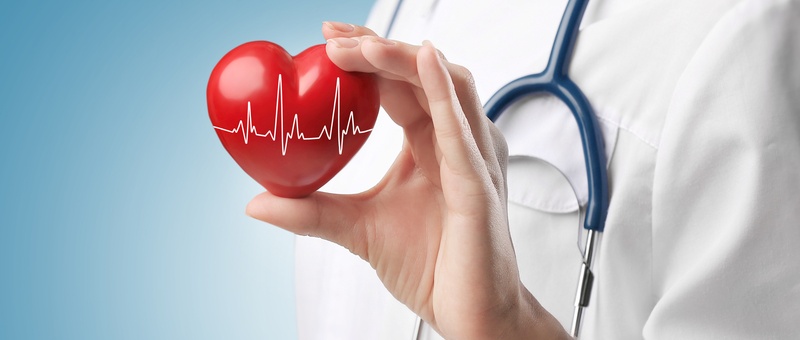
Recovering after a heart attack
Peer reviewed by Dr Sarah Jarvis MBE, FRCGPLast updated by Danny ChadburnLast updated 28 Sept 2017
Meets Patient’s editorial guidelines
- DownloadDownload
- Share
- Language
- Discussion
Every three minutes someone somewhere in the UK suffers from a heart attack. The good news is the majority of these people recover; there are now over 915,000 heart attack survivors living in the UK.
In this article:
Video picks for Heart attack
But if you recently joined their club, you might be wondering ‘what now?’
The road to recovery
‘You will not be discharged from hospital unless the doctors think you are out of immediate danger. In the case of a mild heart attack, when the heart still has good function, you could be home within as little as 48 hours,’ says consultant cardiologist Dr Andrew Archbold from BMI The London Independent Hospital.
Your recovery begins at this point, but can you just resume your normal life or do you need to change your lifestyle?
Exercise after a heart attack
Back to contentsPhysical activity and regular exercise are good for you, as long as it’s done in the right way, and are now one of the main parts of a cardiac rehabilitation programme. ‘Recovering from a heart attack today is not like years ago when you were on bed rest for weeks,’ says Dr Archbold. ‘Now you are encouraged to move. Exactly how much activity is recommended depends on the level of damage your heart has sustained.’
Before you leave hospital, you will see a cardiac rehabilitation team who can give you specific advice and an exercise programme that will gradually build up to what you are capable of. Generally though, it’s hoped most people will manage 20 minutes of walking, swimming or cycling in one go within four to six weeks.
One activity not recommended for a while is lifting heavy weights, ‘This can increase blood pressure while you do it and doesn’t give the sustained stimulus the heart needs to strengthen it again,’ says Dr Archbold. Ask your team when you can start weightlifting again if it’s an exercise you enjoy.
Continue reading below
Should you change your diet?
Back to contentsIt may need an overhaul. ‘Because excess weight increases the risk of a heart attack, if you are overweight your cardiac rehabilitation team will try and work with you to get you back down to a healthy BMI. So this could mean some dietary changes,’ says Julie Ward, senior cardiac nurse at the British Heart Foundation.
‘We suggest you avoid foods that increase the risk of coronary heart disease like saturated fat, and ideally swapping to a more Mediterranean style of eating which may lower risk,’ says Ward. This means lots of fresh fruit and vegetables, healthy fats in the form of olive oil, nuts and wholegrains, and an emphasis on fish over meat, particularly oily fish which contains healthy omega-3 fats.
Stop smoking
Back to contentsIf you smoke, it will be strongly suggested that you stop - smokers are almost twice as likely to have a heart attack as those who’ve never smoked. You’ll be offered plenty of support to quit though. Start with our tips on how to stop smoking.
Continue reading below
Going back to work
Back to contentsHow fast this happens depends on your occupation; if you sit at a desk all day, it might be okay to go back after a couple of weeks, but ‘if you have a job that involves physical activity, you’ll need at least two weeks off and to be cleared by the cardiac rehabilitation team before you go back,’ says Dr Archbold.
Another group that needs extra time off are those who drive for a living, such bus drivers, lorry drivers and taxi drivers. You must tell the DVLA about your heart attack, and you need to be fully recovered - and pass a treadmill stress test - to regain your license to drive for work. That usually doesn’t happen for at least six weeks after a heart attack.
Do you need check ups?
Back to contentsThe biggest cause of a heart attack is coronary heart disease, ‘so you will be regularly checked regularly for CHD risk factors,’ says Ward. ‘Expect to see your GP at least once a year to have your blood pressure and cholesterol levels checked.’
If you are given medication to take after a heart attack, you must keep taking it as instructed by your doctors as it can reduce your risk of having another attack.
Sex and intimacy
Back to contentsYou can generally resume having sex when you feel comfortable, usually around four weeks after a heart attack. Sex is a form of exercise so you should be able to go back to enjoying it - like any other exercise - after a heart attack.
One thing that might affect this is the medication you’re on. Beta-blockers have an effect on circulation that can lower arousal and may lead to erectile dysfunction in men. If you find your sex life is suffering, speak to your GP.
Patient picks for Heart attack

Heart health and blood vessels
Am I having a heart attack?
Every year there are around 100,000 hospital admissions in the UK because of a heart attack - that’s one every five minutes. If you are having a heart attack the key to immediate survival and long-term health is to get treatment as soon as possible. Here we look at how to tell if you are having a heart attack, what you should do, and what will happen to you if you are.
by Lawrence Higgins

Heart health and blood vessels
When the heat rises, so do heart risks: What you need to know
Heat waves and high temperatures brings health risks. The American Heart Association (AHA) has issued warnings about taking extra precautions to stay safe in high temperatures. Find out how to help yourself stay cool and healthy here.
by Lawrence Higgins
Continue reading below
Article history
The information on this page is peer reviewed by qualified clinicians.
28 Sept 2017 | Latest version

Ask, share, connect.
Browse discussions, ask questions, and share experiences across hundreds of health topics.

Feeling unwell?
Assess your symptoms online for free
Sign up to the Patient newsletter
Your weekly dose of clear, trustworthy health advice - written to help you feel informed, confident and in control.
By subscribing you accept our Privacy Policy. You can unsubscribe at any time. We never sell your data.